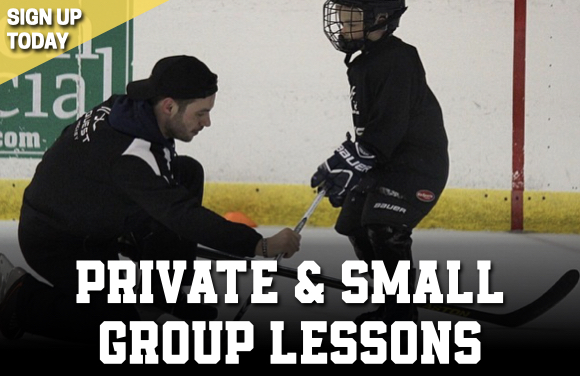
The Recipe for Success – Hockey Specific Nutrition Guidelines for Peak Performance
October 23, 2012
Looking to improve your game and separate yourself from the pack? In addition to on-ice skill development training and off-ice strength and conditioning, a hockey player’s diet is critical to their success.
Attention to the timing of meals and their composition will increase a players performance, whether in the weight room, on the ice, or even in the classroom. According to Gary Roberts, 21-year NHL veteran, Stanley Cup Champion (1989 – Calgary Flames), and lifestyle coach of the Dallas Stars, “at a young age, getting that nutritional edge is going to be what separates a player from the pack.”
Roberts believes a players diet starts with the parents. As he put it, “when I’m in a minor hockey dressing room, it makes me cringe when I see cupcakes and chocolate bars going around after the game. Imagine how that affects performance, especially when the kids are in a tournament and playing four or five games over a weekend.”
To be at peak performance, hockey players must focus on eating the right foods at the right times.
![]()
A pre-game meal that features carbohydrates and lean protein is essential for improved physical and mental performance.
According to Sean Donellan, the Director of Sports Performance for the New York Islanders, players should avoid a massive pasta meal before a game. Instead, players should lower the amount of carbs (whole grain pasta, bread or rice) in their pre-game meal and should add some protein (grilled chicken, turkey or fish), which helps sustain longer energy levels.
The pregame meal should also consist of a colorful vegetable (broccoli, carrots or peas) for the vitamins and nutrients a player’s body needs to perform optimally.
Avoid caffeine and foods high in sugar, which quickly raise your blood sugar, but drop below normal levels at game time (this causes you to feel like you have no energy, i.e., “no legs” feeling), and foods high in fat, which slow digestion causing your meal to stay in your stomach longer (this causes you to feel full, i.e., “heavy legs” feeling).
The pregame meal should be consumed 2-3 hours before the game. As you get closer to game time, players should avoid heartier foods and should eat smaller snacks instead (bagel, granola bar or fruit).
![]()
Because hockey players sweat so much during competition, they must maintain adequate hydration levels for optimal performance. This means players should drink plenty of water to replenish lost fluids.
Players can consume easy-to-digest carb’s such as graham crackers, animal crackers, orange slices, or apple slices for a quick between period snack between periods. Sports drinks (NOT ENERGY DRINKS) are also okay, but be sure that they don’t contain any caffeine.
![]()
According to Gary Roberts, “post-game nutrition is one of the least appreciated pieces of the nutritional puzzle.” In order to be ready for the next game or training session and to reduce player injury and illness, properly refueling the body after a game is essential.
Part 1:
Within 30 minutes of the game easy-to-digest carb’s (SEE ABOVE) should be consumed to replenish depleted carbohydrates that were used during the game. According to Mark Nemish, the strength and conditioning coach of the Washington Capitals, players should “get in about 0.7 – 1.0 grams of carbs/kg bodyweight along with some protein within 30 minutes of your last shift. This will help build up the glycogen (muscle fuel) that you burned during the game.”
Part 2:
Within 90 minutes of the game a hearty meal consisting of flax and essential oils, vegetables, carb’s (pasta or rice) and lean protein (fish, white meat chicken or turkey) provide critical benefits. Drink plenty of water and avoid processed foods, “fast” foods and alcohol (found to impair muscle recovery when consumed after training).
A focused effort on eating the right foods at the right times is the recipe for success and will lead to improved mental and physical performance. A hockey player’s body is a high-performance machine that requires premium, high-octane fuel to perform optimally. Feed the machine and Get After It!
Helpful links:
Gary Roberts – The Importance of Nutrition in Hockey, The Hockey News
Hockey Nutrition Guide, Live Strong
Power Fuel Nutrition for Hockey Players, Peak Performance Canada
Smart Carbohydrates for Athletes, Health Castle
Weekend Warrior – Hockey Pre-Game Meal Plan, Muscle and Fitness
You Are What You Eat, USA Hockey Magazine
And because we love this…cooking russian pierogies with Alyonka Larianov and Geno:


